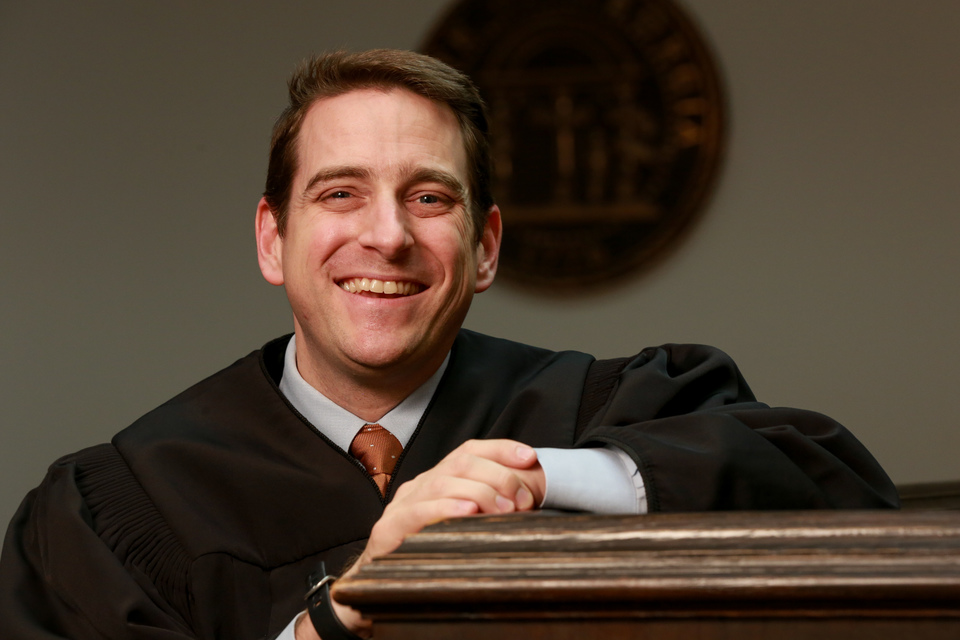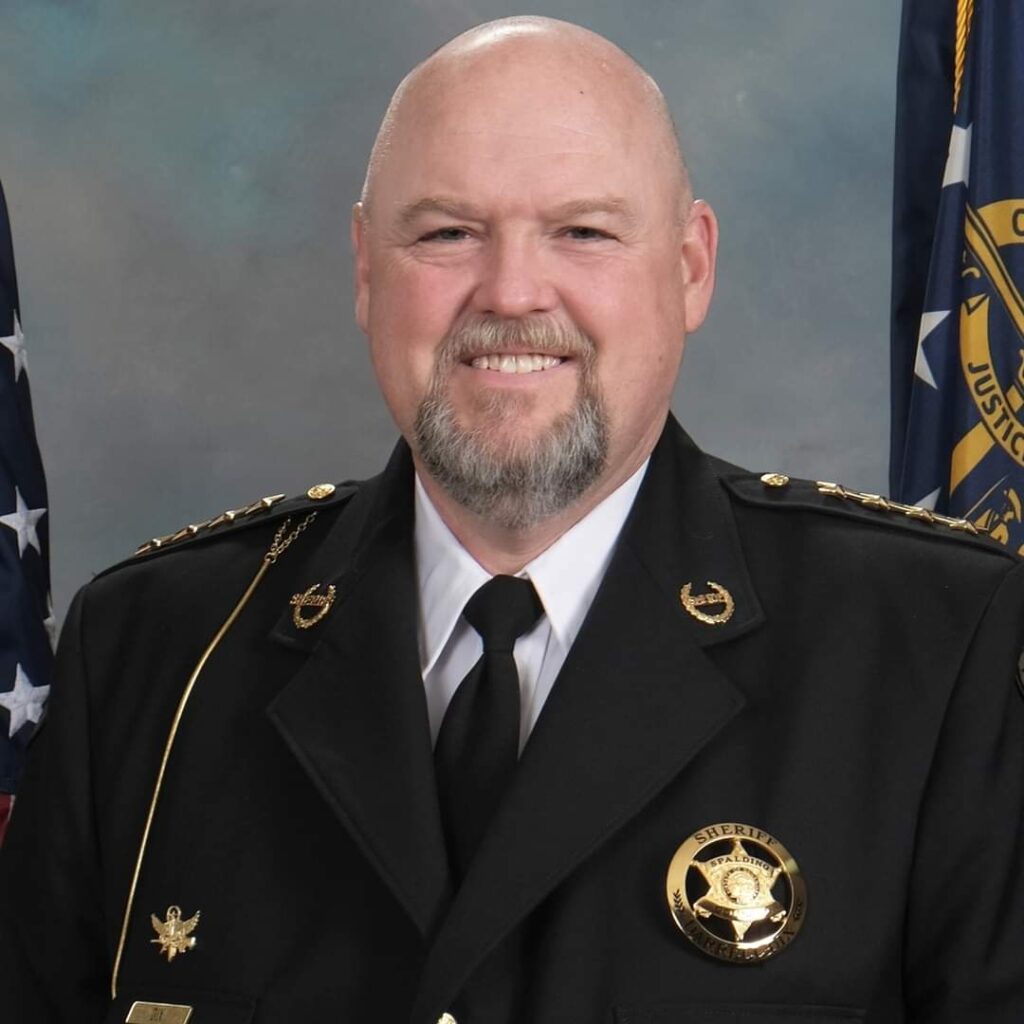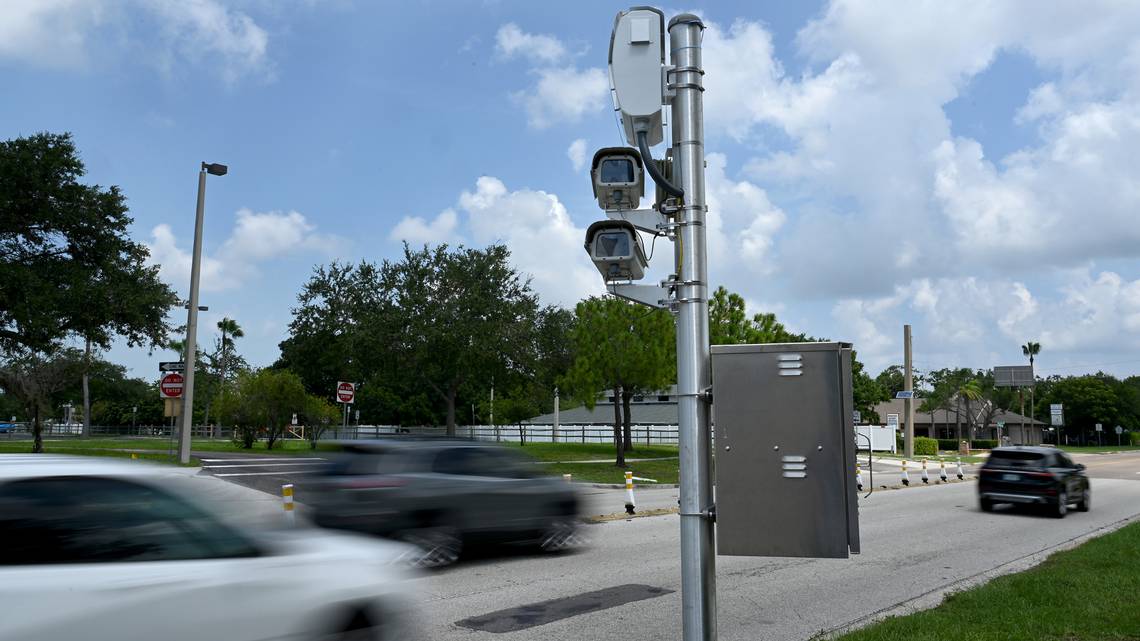On March 19, 2025, the Senate Committee on Public Safety’s subcommittee on first responders convened to scrutinize the statewide school zone speed camera program, including its use in Spalding County. The hearing featured a wide range of voices—from defense attorney and vice chair of the Spalding County Commission, James R. Dutton, to technical experts, law enforcement officials, and legislative sponsors—each contributing to a multifaceted debate over a system that appears to have become more about revenue collection than traffic safety.
“I’m here to talk about the rights of Georgians under the Constitution,” Commissioner Dutton began, setting the tone for a testimony that paints a disturbing picture of a system turning routine traffic enforcement into a relentless revenue generator.

Per Commissioner Dutton, more than 90,000 citations have been issued in Spalding, a county of only 70,000 inhabitants—an eye-opening figure that calls into question the program’s proclaimed purpose of protecting children. “The only rights that we have are the rights that we assert,” he told the committee, stressing that citizens must actively defend their freedoms against what largely appears to be a cashgrab eclipsing citizens’ due process, privacy, and the fundamental ability to challenge governmental actions. “I paid a $300 filing fee [to appeal to the state Supreme Court] instead of just paying the $100 fine,” he said, practicing that very assertion.
He also outlined the strain on local judicial resources by pointing out that, “The cost in Spalding County to go from one state court judge to the four state court judges that we will need is $1.9 million per additional judge.” This means that processing the flood of cases generated by the program would require nearly $6 million in extra resources—a sum that far outstrips any benefits the program claims to offer.
The repercussions extend well beyond courtroom congestion. Once trusted community safeguards, such as crossing guards in school zones, have vanished under the guise of technological progress. “Not once ever is there any recorded instance of a child being hurt or killed in a [Spalding County] school zone,” he noted, revealing how vulnerable areas now lacking human oversight betray the promise of safety for the town’s children.

Under the county’s automated enforcement system, Commissioner Dutton states that every vehicle passing a speed camera is captured—regardless of whether it is speeding. The system records the vehicle’s license plate, linking it to detailed records maintained by state agencies before transmitting this data to a Seattle-based, for-profit company.
“They take a picture of…every single one,” he said. In so, they transform everyday drives into a data-collection exercise. The information gathered extends beyond license plate numbers to include personal details. “They get your address, they get your name, they get your tax history,” Commissioner Dutton said, noting sensitive data is being funneled to a private corporation without the usual checks and balances. These details are traditionally safeguarded by strict governmental protocols and intended to remain confidential, accessible only to authorized law enforcement officials under regulated circumstances.
By granting unfettered access to this data, the program has opened the door to potential misuse. Personal information that is ordinarily protected by privacy laws is now available to a private corporation without the standard oversight expected in public records management. “What can they do with that data? Anything they want,” he warned.
Another unsettling facet of the program is the use of letters that impersonate official law enforcement communications. Commissioner Dutton recalled, “When I put in for a hearing, every single time they send you back an official looking document with the sheriff’s seal on it that says you’re out of time—you just have to pay it.” This impersonation tactic creates an illusion of due process while effectively shutting down any opportunity to contest a citation. “No, you don’t get a hearing; you just have to pay,” he said, leaving drivers with little choice but to comply despite the lack of any genuine legal recourse.
Scott Patterson, President of Dragon Eye Technology in Norcross, explained that his company manufactures laser-based speed camera systems used across Georgia and beyond. He clarified that Dragon Eye works with camera companies like Blue Line rather than contracting directly with cities. Patterson addressed concerns over false positives—such as issues arising when a trailer is pulling a car—and detailed how their systems are designed to ensure accurate speed measurement. He noted that their technology incorporates daily self-tests and stringent quality controls to maintain precision, demonstrating that advanced laser systems can reliably capture speeding violations in school zones when properly managed.
Commissioner Dutton, however, explained that when he requested calibration data for the speed cameras, the only response he repeatedly received was an automated one: “No, I’m calibrated correctly.” The response likely came from a computer without any human verification, raising concerns over the reliability of the devices and the fairness of the citations they generate.
The outcry from citizens around the state prompted GA HB225, a new bill introduced during the 2025-2026 Regular Session that would repeal all laws that authorize automated traffic enforcement safety devices in school zones. This would prevent local governments or law enforcement agencies in the state from entering into or renewing contracts with private companies for these devices and restrict law enforcement budgets from deriving more than 35% of their total from speeding fines. If passed, it would take effect on July 1, 2026.

Representative Dale Washburn, one of the sponsors for HB 225, explained his support for an alternative to automated speed cameras during the hearing, stating, “I believe the flashing lights are very effective.” He explained that speed display signs, which inform drivers of their current speed as they approach a school zone, serve as a direct reminder to slow down. Washburn supports the use of these signs instead of a system that collects revenue from citations.
Rep. Washburn recounted a personal experience on Vineville Avenue in Macon, where a school zone camera issued him a citation at 11:05 a.m. While driving a car registered in his wife’s name, he received a ticket despite no flashing lights being active in the area. “I was running 42 miles per hour in a 30 mph zone,” he said, adding that he nearly discarded the notice as junk mail. Although he acknowledged his speeding, Washburn pointed out that his case was a mild infraction compared to the dangerous speeding the system is supposed to deter. The process forced his wife to obtain a notarized statement and send it via certified mail if she wished to contest the ticket—a procedure that places an undue burden on many working Georgians, for whom a $100 fine can be a heavy financial strain.

Greg Parks, Senior Vice President at Red Speed USA based in Lombard, Illinois, stressed that his company’s speed-camera system complies with the 2018 statute by installing photo enforcement signs 500 feet ahead of school zones to alert drivers in advance, ensuring that motorists know when they are entering an enforcement zone. “If local governments or city councils decide additional signage is needed, we’re ready to provide it,” he noted, positioning his business as one that prioritizes clear, upfront communication over profit.
Butts County Sheriff Gary Long’s encounter with camera companies that pitched their systems as revenue generators rather than safety tools ran counter. He explained that he was approached by two companies—the names of its “salesman,” as he put it, he couldn’t recall, but whose pitches provided no meaningful data: “They didn’t show me statistics. They didn’t show me how many kids were being hit at crosswalks. They didn’t tell me how it’s going to reduce things.” Instead, they simply promised that installing school zone cameras would guarantee between $1 to $2 million in revenue each year.

Rep. Washburn also explained that a common complaint he hears is the endless runaround: “I called the city, they told me to call the camera company; I called the camera company, they told me to call the city.” He believes that unless these cameras are banned in Georgia and replaced with alternative methods for controlling traffic speeds, the safety of our children and the overall goal of slowing down traffic will remain compromised. Washburn argues that there are other, more effective ways to achieve traffic safety without burdening citizens with an endless loop of responsibility between local agencies and private companies.

In a March 24 Facebook post, Judge Josh Thacker of the Spalding County State Court provided an insider’s view of how School Automated Traffic Enforcement (SATE) cases are handled in his court. He explained that these cases fall into two categories—Bus Camera Cases and School Zone Speed Camera Cases—and noted that despite some claims in the media, he has not encountered any after-hours citations. In a post-session statement, Commissioner Dutton said, “Judge Josh Thacker really does know his stuff when it comes to this and is trying to make it as fair as he can.” The judge invited anyone with an after-hours citation to send him a picture for review, stating, “I have zero preference as to whether the legislature ‘mends’ these Camera Cases or ‘ends’ these camera cases. My ONLY goal is to continually improve the systems and processes of the Spalding County State Court so each of you, as you interact with us, you feel that, regardless of the outcome, you were given a fair hearing and a fair day in court.”
In a December 2023 interview with 11Alive, Spalding County Sheriff Darrell Dix noted that he has received hundreds of complaints since the program began in 2022, stating, “If it’s a speed trap, it’s the worst baited speed trap I’ve ever seen.” Sheriff Dix explained that the system works by placing warning signs and flashing lights before the cameras, adding, “If they’re still going at least 10 miles an hour over the posted speed limit for the school zone, then they are caught by the radar.” Sheriff Dix reported a substantial drop in speeding incidents within school zones, similar to results seen in larger cities.

More than a year later, Dutton argues that the fact that more than 90,000 citations have been issued in a county of just 70,000 residents is clear proof that the cameras are not effectively slowing down traffic. He adds that Even Sheriff Dix “is only using a program the legislature gave him,” and that the issue is “with the poorly written bill—not our local folks who are just doing their best with what we have been handed.”
When questioned about the revenue aspect by 11Alive in 2023, Sheriff Dix clarified that the money collected is reinvested back into the county—for instance, to purchase additional equipment for school resource officers. “If anybody wants to come in and look at anything that money has been spent on, we’re really transparent,” he said, adding that the system works as long as drivers slow down.
Rep. Washburn offered a contrasting perspective from Bibb County. He explained: “I think we should point out that this is not going to school systems. I called the school board—they never asked for the cameras and they ended up having to push to get some of the money. They had gotten a small amount of it, but most of it’s going into the local government. We shouldn’t assume that school systems are getting the money and that [this] is directly about school safety.”
In speaking out against the citation system, Commissioner Dutton does not intend to place blame on the state legislature for granting permission for the cameras in 2018. “Who wouldn’t be for safety in school zones?” he inquired in a March 26 Facebook thread on the matter. “But now that we know that this isn’t about student safety, now that we know it isn’t slowing people down, now that we know it isn’t making kids safer, now that we know who is really benefiting from this program, the legislature must kill this law.”
In addition to HB225, another legislative proposal—SB75—would retain school zone speed cameras but impose tighter rules on their use. Championed by lawmakers such as Senator Max Burns, this proposal would require clearly posted speed display signs, restrict enforcement to specific time windows around school start and dismissal, and establish a revenue-sharing model so that fines benefit local school safety programs rather than local governments alone. Proponents argue that with these added measures, the cameras could fulfill their original purpose of reducing traffic speeds in school zones without becoming a tool for profit-driven enforcement.
“The alternate bill [SB74] raises the percentage of the fee that the company gets from around 30 to a whooping 50 percent,” Commissioner Dutton was quick to note. A proponent of ending all school zone speed-camera contracts in Spalding and beyond, he urges everyone who agrees to call Lt. Governor Burt Jones at (404) 656-5030 and ask him to publicly support HB 225 to end the system entirely.
Lt. Governor Jones can also be reached via email.
See the full subcommittee testimony here, courtesy of the Georgia State Senate YouTube page.
HB 225 (to end the contracts) can be found here.
SB 75 (to amend the contracts) can be found here.


